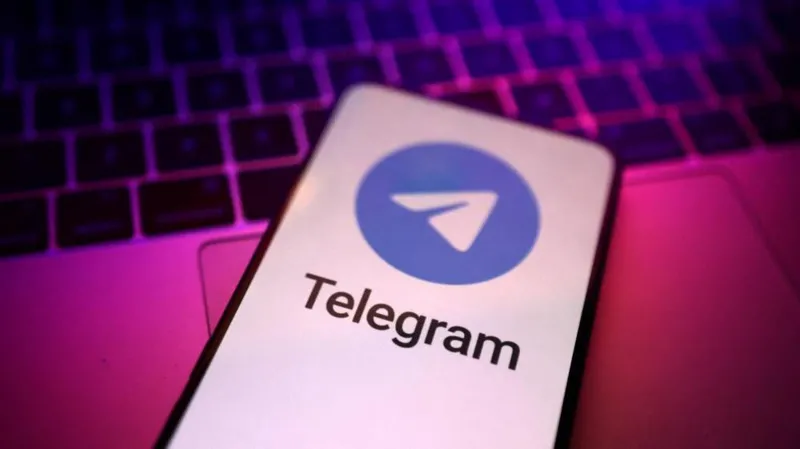Telegram has expressed its apologies to South Korean authorities concerning the platform’s management of deepfake pornographic material, which has become a significant issue in the nation. The apology follows an announcement from the South Korean police that they had initiated an investigation into Telegram, accusing the application of “abetting” the distribution of these illicit images. In recent weeks, investigations revealed the existence of numerous Telegram chatrooms, many of which were operated by teenagers, that had been involved in creating and sharing sexually explicit deepfakes. These digital fakes often manipulated photographs of young women to produce pornographic material. In response to the police’s inquiries, Telegram has reportedly removed the controversial videos from its platform and has taken steps to improve communication with South Korean regulators.
In a formal statement made to the Korea Communications Standards Commission (KCSC), Telegram expressed regret over the situation, labeling it as “unfortunate.” The company indicated it takes matters of this nature seriously and offered an apology should there have been any misunderstandings related to the issue. Following a request from the KCSC, Telegram confirmed the removal of 25 deepfake videos from its platform. Furthermore, the messaging service proposed a dedicated email address for future communications with KCSC, which was met with approval. The KCSC referred to Telegram’s response as “very forward-looking,” acknowledging that the company has recognized the gravity of the circumstances they are currently facing.
Deepfakes, which are created through artificial intelligence techniques, typically blend the face of a real person with a digital body, resulting in highly deceptive images and videos. The recent surge in scandals surrounding deepfake pornography has incited public outrage in South Korea, particularly after it was revealed that law enforcement agencies were probing similar criminal activities at two prominent universities in the country. Over just five days, police received 118 reports regarding deepfake videos, and authorities have questioned seven individuals, six of whom are teenagers, who are believed to be linked to the distribution of such material. These chat groups generally corresponded to specific schools and universities, while many victims were students or faculty members connected to the perpetrators.
Under South Korean law, individuals found guilty of producing sexually explicit deepfakes can face severe penalties, including imprisonment for up to five years or fines reaching 50 million won (approximately $37,500 or £28,300). The distressing discoveries surrounding deepfake porn in South Korea occur in the wake of heightened scrutiny toward Telegram’s founder, Pavel Durov, who was recently arrested in France. Durov faces allegations of child pornography, drug trafficking, and fraud associated with activities conducted on the platform. As Telegram grapples with the legal ramifications resulting from these incidents, public attention emphasizes the significance of ensuring the safety and security of digital platforms such as Telegram.
The issue of digital sex crimes in South Korea is exacerbated by a troubling history with Telegram, particularly regarding the facilitation of sexual abuse. In 2019, revelations surfaced concerning a sex ring that utilized the app for the blackmailing of women and children into producing pornographic content. The mastermind of the ring, Cho Ju-bin, received a harsh sentence of 42 years in prison. Women’s rights activists have been vocal in their criticisms of South Korean authorities, asserting that they have not effectively addressed the sexual exploitation facilitated through digital means, thereby allowing such abuse to proliferate within the online space. Activists argue that authorities need to take a more aggressive stance to combat these crimes to protect vulnerable individuals from exploitation.
In the wake of these events, South Korean President Yoon Suk Yeol has called for a comprehensive investigation into digital sex crimes, encouraging authorities to thoroughly address and eliminate these harmful practices. The presidential directive reflects growing concerns over the misuse of technology for the purposes of sexual exploitation, highlighting that the government recognizes the urgent need to confront and mitigate the risks associated with deepfake pornography and related criminal activities. The ongoing investigations into Telegram’s role in this crisis serve as a critical moment for law enforcement to reassess their approaches to dealing with digital crimes in an age of rapidly evolving technology.
The challenges posed by deepfake technology and the increasing prevalence of digital sex crimes underline the importance of creating robust legal frameworks and technological safeguards for users. As the dialogue surrounding digital ethics advances, it is essential for both social media platforms and regulatory authorities to collaborate in promoting a safer online environment. By ensuring that companies like Telegram remain accountable for the content shared on their platforms, authorities can take essential steps toward protecting individuals from the digital exploitation that has become more prominent in recent years. The situation in South Korea serves as a cautionary tale, urging other nations to proactively address the burgeoning issue of digital sex crimes while balancing technological innovation with ethical responsibility.


